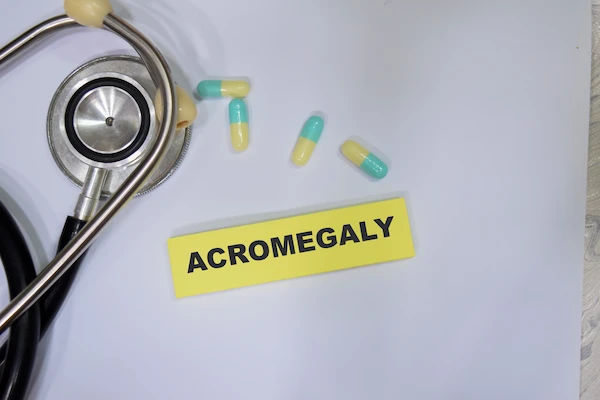Cold Sore on Lip: Information and Treatment
Know about cold sores on the lips, including common causes, symptoms, how they spread, and effective treatment options. Find out when to seek medical advice and tips to prevent future outbreaks.


Introduction
Cold sores, also known as fever blisters, are small, painful blisters that typically appear on or around the lips. They are caused by the herpes simplex virus (HSV-1) and can be both uncomfortable and embarrassing. If you’ve ever experienced a cold sore, you know how frustrating they can be. The good news is that while they can’t be cured, they can be managed effectively.
In this article, we’ll discuss what cold sores are, their symptoms, causes, and how they affect your health. We’ll also share practical tips for managing them and when to seek medical help.
What is a Cold Sore?
A cold sore is a small, fluid-filled blister that forms on or near the lips. It is caused by the herpes simplex virus type 1 (HSV-1), which is highly contagious. Once infected, the virus stays in your body for life, lying dormant in nerve cells and occasionally reactivating to cause outbreaks.
Cold sores usually go through stages:
1. Tingling or itching – A day or two before the blister appears, you may feel a tingling or burning sensation.
2. Blister formation – Small, painful blisters filled with fluid appear, often in clusters.
3. Weeping and crusting – The blisters burst, ooze fluid, and form a scab.
4. Healing – The scab falls off, and the sore heals without scarring.
An outbreak typically lasts 7–10 days, but the first episode may be more severe.
Consult a Dermatologist for the best advice
What Causes Cold Sores?
Cold sores are caused by the herpes simplex virus (HSV-1), which spreads through:
- Direct contact (kissing, sharing utensils, lip balm, or towels).
- Oral sex (can also spread HSV-1 to the genitals).
- Skin-to-skin contact with an infected person, even if no blisters are visible.
Once infected, the virus remains in your body and can be triggered by:
Stress or fatigue
- Sun exposure (UV rays can activate the virus)
- Hormonal changes (like during menstruation)
- Illness or fever (hence the name "fever blisters")
- Weakened immune system
How Do Cold Sores Affect Your Health?
While cold sores are usually harmless, they can cause discomfort and emotional distress due to their appearance. In rare cases, complications may arise, such as:
- Eye infections (if the virus spreads to the eyes, leading to herpes keratitis).
- Spread to other body parts (like fingers or genitals).
- Severe infections in people with weakened immune systems.
If you have frequent or severe outbreaks, consult a doctor for proper management.
How to Treat and Manage Cold Sores
While cold sores heal on their own, treatments can speed up recovery and reduce discomfort.
1. Over-the-Counter (OTC) Treatments
- Antiviral creams (e.g., acyclovir, penciclovir) – Apply at the first sign of tingling.
- Pain relief gels (lidocaine or benzocaine) – Help numb the area.
- Lip balms with sunscreen – Prevent sun-triggered outbreaks.
2. Home Remedies
- Ice pack – Reduces swelling and pain.
- Aloe vera gel – Soothes irritation.
- Lysine supplements – Some studies suggest they may reduce outbreaks.
3. Prescription Medications
- For severe cases, doctors may prescribe:
- Oral antiviral pills (e.g., valacyclovir, famciclovir).
- Stronger topical treatments.
4. Lifestyle Tips to Prevent Outbreaks
- Avoid triggers (stress, sun exposure, illness).
- Use sunscreen on lips (SPF 30+).
- Don’t pick or pop blisters – This can spread the virus.
- Wash hands frequently – Prevents spreading to others or other body parts.
- Avoid sharing personal items (towels, utensils, lip balms).
When to See a Doctor
Most cold sores heal on their own, but consult a doctor if:
- Sores last longer than two weeks.
- You have frequent outbreaks (more than 5–6 times a year).
- The sores spread to eyes, genitals, or other areas.
- You have a weakened immune system (due to HIV, chemotherapy, etc.).
Final Thoughts
Cold sores are common and manageable. While they can be annoying, understanding their triggers and taking preventive steps can help reduce outbreaks. If you experience frequent or severe cold sores, don’t hesitate to seek medical advice.
Consult a Dermatologist for the best advice
Consult a Dermatologist for the best advice

Dr. S Madhuri
Dermatologist
10 Years • MBBS, MD. DVL, DNB, Fellow (Dermatosurgery & Lasers)
Secunderabad
Apollo Hospitals Secunderabad, Secunderabad
(300+ Patients)
Dr. Kavitha Killaparthy
Dermatologist
23 Years • MBBS,DIPLOMA(DERMATOLOGY,VENEREOLOGY,LEPROSY)
Hyderabad
JDS Skin & Hair Clinic, Hyderabad

Dr. Madhab Datta
Dermatologist
5 Years • MBBS, MD (DVL)
Kolkata
Dr. Madhab Datta's Clinic, Kolkata

Dr. Parul Gohil
Dermatologist
5 Years • MBBS, MD(DERMATOLOGY,VENEREOLOGY & LEPROSY)
Bengaluru
Apollo Clinic, JP nagar, Bengaluru
Dr.j Girishma
Dermatologist
6 Years • MBBS MD DERMATOLOGY
Bengaluru
Apollo Medical Center, Marathahalli, Bengaluru
Consult a Dermatologist for the best advice

Dr. S Madhuri
Dermatologist
10 Years • MBBS, MD. DVL, DNB, Fellow (Dermatosurgery & Lasers)
Secunderabad
Apollo Hospitals Secunderabad, Secunderabad
(300+ Patients)
Dr. Kavitha Killaparthy
Dermatologist
23 Years • MBBS,DIPLOMA(DERMATOLOGY,VENEREOLOGY,LEPROSY)
Hyderabad
JDS Skin & Hair Clinic, Hyderabad

Dr. Madhab Datta
Dermatologist
5 Years • MBBS, MD (DVL)
Kolkata
Dr. Madhab Datta's Clinic, Kolkata

Dr. Parul Gohil
Dermatologist
5 Years • MBBS, MD(DERMATOLOGY,VENEREOLOGY & LEPROSY)
Bengaluru
Apollo Clinic, JP nagar, Bengaluru
Dr.j Girishma
Dermatologist
6 Years • MBBS MD DERMATOLOGY
Bengaluru
Apollo Medical Center, Marathahalli, Bengaluru




.webp)